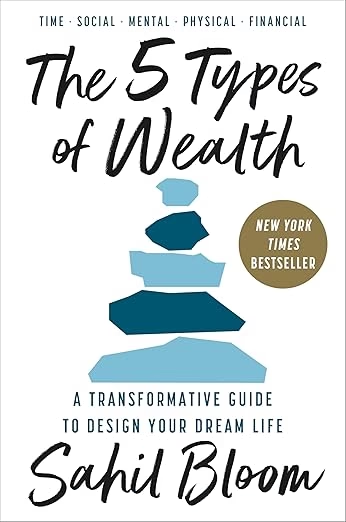What Brings More Happiness?
Authenticity vs. Importance
Introduction to the Dilemma: Authenticity vs. Importance
Pursuing more happiness often leads individuals to ponder whether it is more fulfilling to be true to oneself or seek recognition from others. This central question touches upon the age-old debate between personal authenticity and societal importance. Understanding what it means to ‘be myself’ involves embracing one’s true nature, values, and beliefs, while living in alignment with personal principles. On the other hand, striving to ‘be important’ typically entails achieving status, recognition, or influence within a community or society.
Personal growth and consciousness play pivotal roles in this dilemma. Authenticity requires a deep awareness of oneself, fostering an environment where personal growth flourishes. When individuals are authentic, they often experience a sense of fulfillment and inner peace, as external expectations or societal pressures do not constrain them. Being oneself can lead to a full life, rich with genuine connections and self-acceptance.
Conversely, the quest for importance is driven by external validation and the desire to be acknowledged by others. This pursuit can often bring about a sense of accomplishment and pride. However, it may also lead to a dependency on others’ opinions, potentially causing stress and anxiety. The balance between personal authenticity and societal importance is delicate; both paths offer unique rewards and challenges.
As we delve deeper into this topic, it becomes crucial to examine the implications of choosing one path over the other. By exploring the nuances of authenticity and importance, we aim to uncover what ultimately brings more happiness and fulfillment in life. This exploration will provide valuable insights for those seeking to navigate the complex interplay between being true to oneself and achieving recognition and importance in the eyes of others.
Unparalleled online learning experiences, New Skills Academy!
Defining Personal Authenticity
Personal authenticity is the cornerstone of living a full and meaningful life. It involves a deep understanding of oneself, encompassing self-awareness, self-acceptance, and alignment with one’s intrinsic values, beliefs, and desires. At its core, being authentic means recognizing and embracing who you truly are, rather than conforming to external expectations or societal norms.
Self-awareness is the first step toward personal authenticity. It requires introspection and honesty, allowing individuals to uncover their true motivations, strengths, and weaknesses. This heightened level of consciousness enables one to make more informed decisions that are in tune with one’s genuine self. For instance, someone who values creativity might choose a career in the arts over a more traditional path, despite external pressures to conform.
Self-acceptance follows as it involves embracing all aspects of oneself, including imperfections and vulnerabilities. This acceptance fosters a sense of inner peace and reduces the internal conflict that arises from trying to be someone one is not. It is a crucial element in achieving mental well-being, as individuals who accept themselves are less likely to experience stress, anxiety, and depression.
Living in alignment with one’s values and beliefs is the practical manifestation of authenticity. It means making choices that reflect who you are at your core, rather than who others expect you to be. This alignment brings a profound sense of fulfillment and purpose, contributing significantly to overall happiness. For example, someone who values family might prioritize spending quality time with loved ones over pursuing professional accolades.
The mental health benefits of embracing personal authenticity are well-documented. Authentic individuals tend to experience higher levels of self-esteem, resilience, and life satisfaction. They are better equipped to navigate challenges and maintain a positive outlook, as their actions are congruent with their true identity. In essence, being oneself not only promotes personal growth but also enhances overall well-being, paving the way for a more content and enriching life.
Understanding Social Importance
Social importance encapsulates a range of attributes that contribute to an individual’s standing within society. These attributes may include professional success, social status, and influence. Professional success often equates to achieving one’s career goals, gaining recognition within a chosen field, and attaining financial stability. Social status, on the other hand, pertains to the level of respect and admiration one receives from peers and the broader community. Influence extends beyond personal achievements to the ability to affect others’ thoughts, behaviors, and decisions.
Being important in these contexts can provide numerous benefits. External validation, for instance, is a significant factor. When individuals receive recognition for their achievements, it can boost their self-esteem and encourage further personal growth. Opportunities often accompany social importance as well, such as invitations to exclusive events, access to influential networks, and platforms to voice ideas and opinions.
However, the pursuit of social importance is not without its challenges. Societal pressures can drive individuals to prioritize external validation over intrinsic satisfaction. The modern world often equates worth with visible success and influence, creating a constant comparison with others. This can lead to stress, anxiety, and a never-ending quest for more recognition.
Despite these pressures, achieving social importance does not inherently negate living a full life. It can be aligned with one’s values and consciousness if pursued with balance and self-awareness. Understanding the nuances of social importance is crucial for navigating its potential benefits and pitfalls, ensuring that the quest for recognition does not overshadow personal growth and the development of a fulfilling, authentic life.
The Psychological Impact of Authenticity
Living authentically, or being true to oneself, is a vital component of personal growth and overall well-being. Research indicates that authenticity fosters increased self-esteem, as individuals who embrace their true selves are more likely to feel confident and secure. This self-assurance stems from the alignment between one’s actions and inherent values, leading to a sense of integrity and self-respect.
Moreover, authenticity facilitates the formation of genuine relationships. When individuals present their true selves, they attract those who appreciate and accept them for who they are. This genuine connection fosters deeper, more meaningful relationships, as opposed to superficial bonds based on pretense. Authentic interactions are crucial for emotional support, contributing significantly to one’s mental health and happiness.
Inner peace is another profound benefit of living authentically. When individuals shed the burden of societal expectations and embrace their true identity, they experience a sense of liberation. This freedom from external validation reduces anxiety and stress, paving the way for a calmer, more centered life. In essence, authenticity allows individuals to live a full life, characterized by inner harmony and fulfillment.
Studies corroborate these psychological benefits. For instance, research published in the Journal of Counseling Psychology highlights the positive correlation between authenticity and mental health. Participants who demonstrated higher levels of authenticity reported lower levels of depression and anxiety. Expert opinions echo these findings, with psychologists emphasizing the importance of self-acceptance and authenticity for mental well-being.
In conclusion, the psychological impact of authenticity is profound, encompassing increased self-esteem, the formation of genuine relationships, and inner peace. By embracing their true selves, individuals can achieve personal growth and live a more fulfilling life, free from the constraints of societal expectations.
Unparalleled online learning experiences, New Skills Academy!
The Psychological Impact of Seeking Importance
Striving for importance often brings a complex array of psychological effects that can shape an individual’s mental well-being. On one hand, the pursuit of significance can result in tangible rewards such as a heightened sense of accomplishment and an elevated social standing. Achieving recognition in one’s personal or professional life can foster a sense of self-worth and validation, driving individuals to continuously improve and push their boundaries. These positive reinforcements can contribute to a flourishing sense of personal growth and fulfillment.
However, the relentless quest for importance is not without its drawbacks. The pressure to maintain a high level of performance and meet societal expectations can result in significant stress and burnout. The constant need for external validation may lead individuals to prioritize others’ perceptions over their well-being, potentially resulting in a loss of self and authenticity. The pursuit of importance can also create a competitive environment, where the fear of failure and inadequacy looms large, exacerbating anxiety and diminishing overall life satisfaction.
Research indicates that societal validation plays a crucial role in an individual’s mental health. Studies have shown that while external recognition can provide temporary boosts in self-esteem, long-term reliance on societal approval can be detrimental. It can lead to an overemphasis on external achievements and neglect of intrinsic values and personal contentment. This imbalance may impede one’s ability to live a full life, as the focus shifts away from inner happiness and self-awareness towards a perpetual chase for external accolades.
Ultimately, the psychological impact of seeking importance highlights the delicate balance between external validation and personal consciousness. While striving for importance can yield rewarding experiences and personal growth, it is essential to remain mindful of the potential psychological costs. Embracing a balanced approach that values both personal authenticity and societal recognition may pave the way for a more holistic and fulfilling life experience.
The 5 Types of Wealth by Sahil Bloom
Discover Sahil Bloom’s holistic approach to wealth in ‘The 5 Types of Wealth,’ offering practical insights to help you live a richer, more intentional life. Don’t wait to start designing your dream life! This book is your starting point!
Balancing Authenticity and Importance
Balancing authenticity and importance can be a challenging endeavor in the journey of personal growth. While the pursuit of importance often necessitates a degree of conformity and compromise, maintaining one’s true self is crucial for overall well-being and living a full life. Achieving this balance requires conscious effort and strategic planning, allowing individuals to navigate their ambitions without losing their core identity. Here are several practical tips to help maintain personal authenticity while pursuing goals that may increase one’s sense of importance.
First, setting clear personal values is essential. Understanding what fundamentally drives you can help guide decisions and actions, ensuring they align with your true self. These values act as a compass, directing you towards opportunities that resonate with your authentic self while still allowing for growth and recognition.
Second, self-awareness is key. Regular self-reflection can help you evaluate whether your actions are in harmony with your values and goals. This practice not only fosters a deeper understanding of oneself but also enhances consciousness about the impact of your choices on your personal growth and overall life satisfaction.
Third, seek a supportive environment. Surrounding yourself with people who respect and encourage your authenticity can provide a buffer against external pressures to conform. Such an environment can empower you to pursue your ambitions without compromising your true self.
Lastly, balance is often exemplified through the lives of individuals who have successfully navigated this intricate path. For instance, leaders like Nelson Mandela and Malala Yousafzai have managed to attain global importance while staying true to their core values and beliefs. Their journeys serve as inspiration, illustrating that significance and authenticity are not mutually exclusive.
Ultimately, the balance between being oneself and being important is a dynamic process that requires continuous effort and mindfulness. By staying true to your values, enhancing self-awareness, fostering a supportive environment, and drawing inspiration from authentic leaders, you can achieve a harmonious blend of personal authenticity and societal importance, leading to a richer, more fulfilling life.
Expert Opinions and Case Studies
In the exploration of what brings more happiness, being oneself or being an important expert, opinions shed considerable light on the subject. Psychologists often emphasize the significance of authenticity as a cornerstone of personal growth and well-being. According to Dr. Carl Rogers, a pioneer in humanistic psychology, authenticity allows individuals to align their actions with their true selves, leading to a fulfilling and meaningful life. This notion is supported by numerous studies that show a strong correlation between authenticity and overall life satisfaction.
Sociologists, on the other hand, tend to focus on the societal constructs that influence our perception of importance. Dr. Erving Goffman‘s work on social roles suggests that the pressure to achieve societal importance can lead to stress and a fragmented sense of self. However, the pursuit of societal importance also provides a sense of accomplishment and validation, which can contribute to happiness. The key is finding a balance where one’s personal growth doesn’t get overshadowed by the quest for external validation.
Case studies further illustrate these dynamics. Consider the story of Sarah, a high-powered executive who chose to step down from her demanding role to pursue her passion for art. Initially, she struggled with the loss of status and importance, but over time, she found that living authentically brought her a deeper sense of happiness and fulfillment. Conversely, John, a talented musician, chose to conform to family expectations by taking over the family business. While he gained societal importance and financial stability, he reported feeling an ongoing sense of emptiness and a lack of personal growth.
These anecdotes underscore that the path to a full life is deeply personal and varies from one individual to another. The balance between being oneself and seeking importance hinges on personal values and the ability to harmonize internal desires with external expectations. Ultimately, the pursuit of happiness is a nuanced journey where personal growth and societal importance can coexist, but the emphasis on authenticity often leads to more sustainable and profound contentment.
Finding Your Path to Happiness
In our exploration of whether happiness is more derived from being oneself or from seeking importance, several critical insights have emerged. The quest for personal growth and self-awareness stands central to this discussion. Authenticity in one’s actions and choices often leads to a deeper sense of fulfillment, arising from aligning with one’s true self rather than external validations. This journey of consciousness encourages individuals to embrace their unique identity and values, fostering a profound sense of contentment.
On the other hand, the pursuit of importance, typically driven by societal standards and recognition, can offer its own form of satisfaction. Achieving notable milestones and receiving accolades can indeed boost one’s self-esteem and provide a sense of accomplishment. However, the sustainability of this happiness might be questioned if it is not rooted in one’s genuine desires and passions. The balance between external achievements and internal harmony plays a pivotal role in living a full life.
Get ready to experience absolute relaxation with Sensate!
Ultimately, the path to happiness is highly individual, shaped by personal values, aspirations, and experiences. Reflecting on what truly matters and resonates with one’s inner self can guide individuals toward a more fulfilling existence. Whether it’s through personal growth or achieving a sense of importance, the key lies in understanding oneself and making conscious choices that align with one’s inner truth.
As you navigate your journey, consider what aspects bring you joy and fulfillment. Is it the quiet satisfaction of being true to yourself, or the exhilarating recognition of your achievements? Each path offers its unique rewards and challenges. By integrating these reflections and striving for a balance between authenticity and ambition, you can carve a path that leads to genuine happiness and a meaningful, full life.
Body, Mind, And Soul For A Fulfilled Life!







